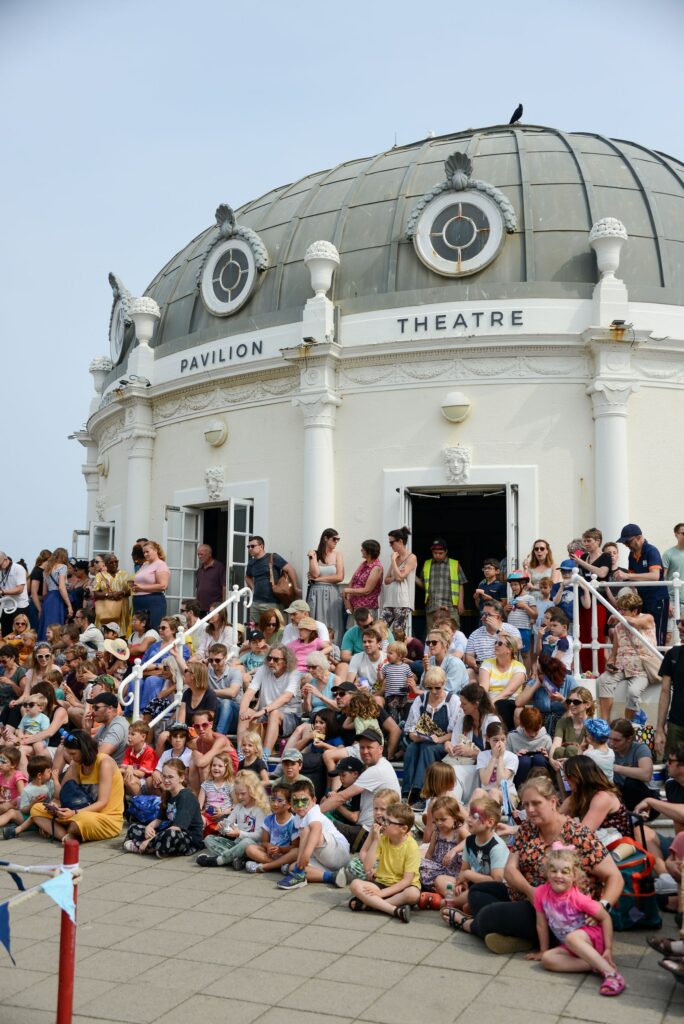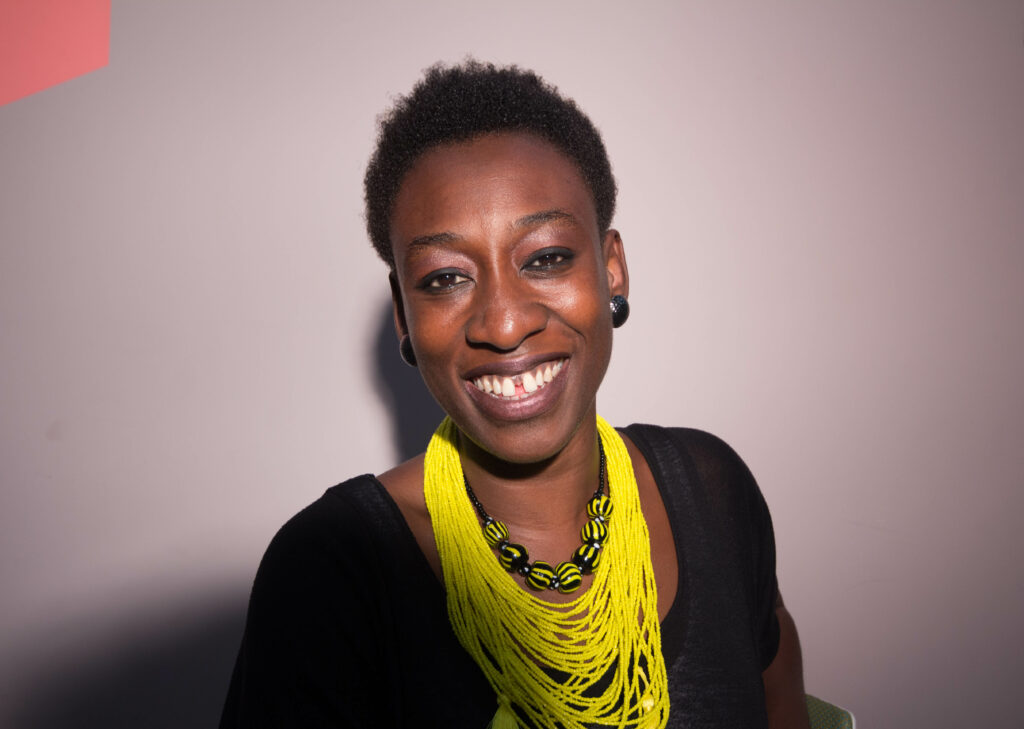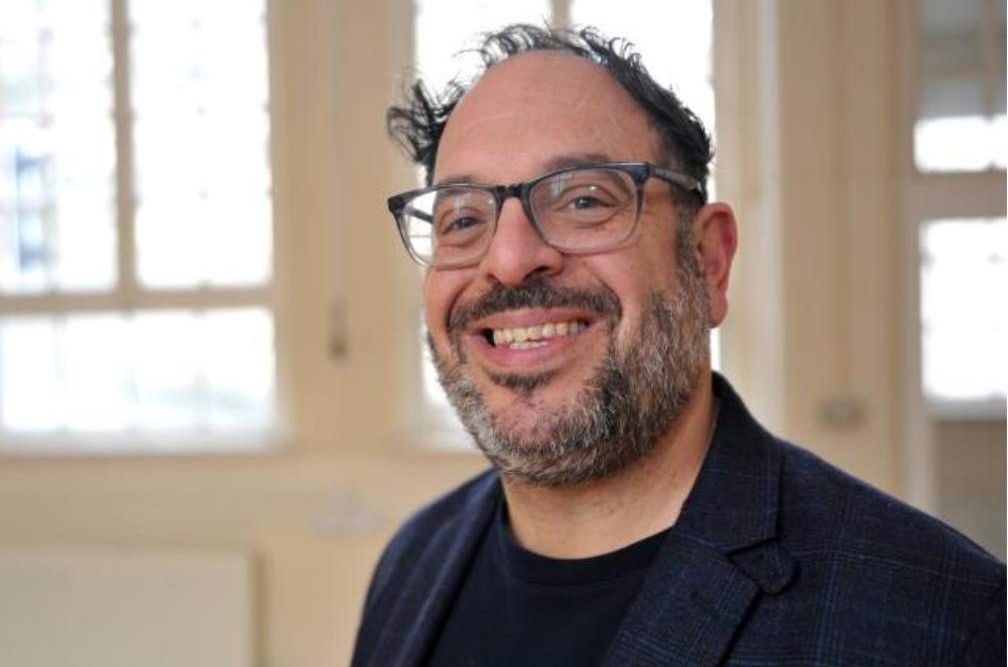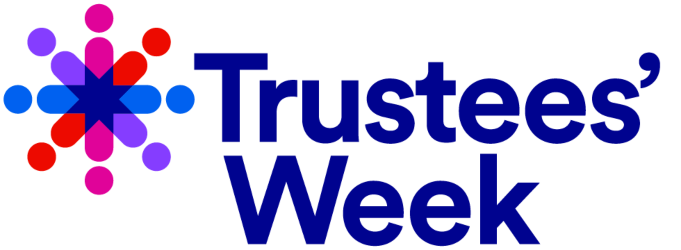We’re celebrating Trustees Week this year, running from 6th to 10th November, to acknowledge the hard work, expertise, and dedication our Trustees provide to the charity.
Worthing Theatres & Museum became an independent charity in 2019, having previously been part of Worthing Borough Council. We couldn’t have known what 2020 had in store for us, but the Covid-19 pandemic was a changeable and unpredictable time for any charity – let alone one that had just formed. Thankfully, we have a fantastic board of committed trustees to guide us to help us grow as a charity.
A board should represent a range of skills, experiences, and voices to help charities tackle the varying challenges they face. A trustee needs a passion for the charity’s industry or its aims, a drive to support the organisation, and the confidence to give advice and an informed opinion.
We caught up with some of our trustees to find out more about what they do to help our charity.

Yemisi Mokuolu
Board Member

Yemisi Mokuolu is an award winning independent producer and creative business developer with over 17 years experience. She is the co-founder of Five Cowries, the biggest arts education charity in Nigeria.
Yemisi moved to Worthing from Brighton a couple of years ago, drawn in by the arts culture in the area. Yemisi has been a member of the WTM board since the summer of 2023 and brings with her a wealth of knowledge in the arts industry and creative business development. Her expertise in industry best practice provides an essential voice on our board, ensuring our charity’s creative integrety.
I am an independent producer, cultural developer, and also a creative business developer. I deliver training programmes, workshops, mentoring and 1:1 support for creative culture and social entrepreneurs – to develop their businesses and their projects.
I produce a lot of arts festivals to raise the profile and broaden the imagination of African arts and culture. Currently I’m working on a five day rave in Ghana, which is a great platform for musicians with alternative sounds from Africa to be seen on a global platform. I have recently been commissioned by Brighton and Hove council to create a piece exploring Brighton and Hove’s relationship with the transatlantic slave trade, which will be launched in November.
They found me! I had recently moved to Worthing – because it is a wonderful place that I wanted to live in, and also a place that I wanted my daughter to grow up in, in terms of safety, opportunities, and the cultural feeling I got when I was here. I went to quite a few different things, I saw Othello, which was amazing, I saw a lot of the experimental dance pieces. I was asked to join the Worthing Arts Forum, because I am very good at strategically developing culture in the community. When I was there Amanda heard me talking about what I thought we could do and invited me to lunch. I thought she just wanted to talk to me as a consultant, but then she said “Would you like to be a trustee?”
At first I felt like I wasn’t grand enough to be a trustee! I’d been a trustee for various smaller charities, but I really wanted to be part of this. I saw the vision and I really wanted to be able to create something for the changing community – something that pushed arts and creativity – and it really fitted into what I wanted for myself as a creative producer.
Because of the business development that I do, I realised that I have a lot of the operational skills that I could lend to the business. I was very humbled and I accepted the role as a professional, and as a resident.
It means a duty of care to the remit of the charity, making sure that the charity is being supported to the best of its ability. It’s having an extra pair of kind ears and eyes – and sometimes muscle – to be able to support the charity and help it stay sustainable. It means making sure the staff are well cared for, so that we can achieve our mandate.
I think it’s a role that’s very supportive, nurturing, and full of wisdom. We’re creating space for people to take risks in a safe way. We’re championing and cheerleading the charity staff. A trustee can help the charity reach its remit – so whether the aim is to be more diverse, or to be efficient operationally, we can help with that. We can share our expertise in terms of best practice.
I’ve got loads of friends who are CEOs and trustees, so I go to them. They’re professionally 12-15 years ahead of me and have always served me very well – they’re trustees of some of the biggest arts charities.
I also have relationships with incredible lawyers and other kinds of professionals who have always given me their ear, as sort of mentors for this, that and the other! I’ve got a great network that I’ve grown over the years through developing my own creative practice.
Then obviously the community – I listen to the community a lot and then I’m able to translate that within the board meetings. I am really quite active in terms of sounding out the community – especially if there’s any issues. I’ve been on boards for 12 years now, so I am well practised at being able to sort out if there is an issue. I have my network I can reach out to, but in terms of making sure WTM is really hitting those high notes for their beneficiaries, I do a lot of listening.
There is a really strong level of professionalism. Everyone is very accomplished, but not overzealous, and they are solid in their own profession. It’s actually quite rare. Some people like to be on boards for the status, but these people are more unexpected board members – they’re hard working people who come from all kinds of professions – accountants, shopkeepers – meat and potatoes kinds of people, really really good. We also have the experts within the arts field, and they’re very successful but also entrepreneurial and tenacious.
One of the things that I like is that there is a great level of respect in terms of how one conducts the conversation, and a respect for the agenda. There’s lots of space for counter discussion and understanding. There’s a good process. It feels like a relaxed and non-judgemental space. It’s very comfortable… it’s a very generous and well-meaning space.
It could be one of the jewels of England’s cultural offer – it really could!
What excites me is the mindset of all the staff – they want to be excellent and they want to serve the community. There’s no resistance to doing something really fabulous. It’s about being the custodians of Worthing’s culture, making something the people of Worthing are proud of. There’s an opportunity to really show the UK, show the world, the central role the arts plays supporting the community.
A lot of people can feel disenfranchised by big arts institutions, as they’re part of this ‘old network’. But the openness of the board to make this work – everyone is humble, they’re hard working, they’re excited, they’re enthused, they’re modern, they’re working class – what you want is people who are open minded and balanced by their experiences. We forget that less than 3% of the country is made up of people of colour, so you won’t get that many brown people, but we have people who have a diverse group within their own networks. The reason I’m excited is because WTM has realistic but high ambitions, and they’re dedicated and open minded enough as a team to make it happen.
Go and do some training! Ask if you can shadow a board, at least for a year. Observe their practices and confidentiality. When I was 22 I joined a board specifically for that. Get training so you really understand the legalities and implications of the responsibilities. Then do your research: once you find a charity that you want to support, make sure it is one you really believe in, because it is a minimum of 3-4 years commitment!
Also, get your CV together and know what you can bring to the table. For me, it’s as much about giving as it is receiving, so when I go onto a board I am very clear on my knowledge gaps and the areas where I want to learn.
And make it your dream! Find projects that fulfil your higher purpose. Know what you can learn from them, and what you can give to them. That will keep you going for 4 years. A lot of stuff is going to happen in that time. Being a trustee is a legal imperative. You have to put the work in, and the work is being present and caring. I feel like much can be achieved if we’re not worried about who wears the crown.
Thank you, Yemisi!
Andy Sparsis
Trading Subsidiary Chair

Andy Sparsis is the founder of Proto Restaurant Group and has been a proud member of the Worthing business community for over 15 years.
Andy moved to Worthing from Brighton around 2003 with his family. He is a local entrepreneur and business owner who is committed to the town’s development and growth of its cultural offer for the community and tourists. As well as sitting as a trustee on our main board, Andy is the chair of our Trading Subsidiary board. They oversee the daily operations and costs of our charity from how much we pay our staff to how much beer costs in our bars. His expertise as a hospitality entrepreneur provides invaluable insight for our customer experience and front of house teams.
I moved to Worthing 20 years ago and opened The Fish Factory. We’ve integrated into the community, our kids go to school here. Worthing is a family town, so we’ve tried to use our business to help the local economy and involve ourselves with many local organisations. We help out where we can!
I think it’s really important that businesses have a voice in the community as well because everyone needs to have their input and everyone is involved in the growth of a town. We’re just like a big family! You have to be active to make sure things improve in a town. Worthing is a growing town, it’s changing – always. It’s always moving and always morphing into something else – and that’s great because the population changes and grows as well.
WTM is a really important part of Worthing’s cultural offer. I think of it sometimes like a shop window for other people looking at Worthing; WTM provides the culture, the depth of quality, the standards. It sets the bar of what we should deliver. We’re elevating the stature of the town and I’ve always been proud to be a part of that.
I’m a trustee on a few organisations, and they’re great and everyone wants to help. But what I found was that the Trustees at WTM are all really impressive people. The people that work here are also groundbreaking – everyone who works here does so because it’s their passion, and that really benefits the town. WTM grabs these talented people and attracts people that are aspirational. To be involved in that is a massive learning curve for me – and I love learning. I feel like I get so much more out of them than they get out of me!
From a business point of view, I feel I bring a business or corporate structure to WTM that is vital for arts institutions. That gives a different perspective, another option, and that protects WTM financially. But on a personal level, I feel great about being here because we haven’t even started with what we are going to achieve! I want to be part of that. It’s an exciting time to be involved. I don’t even know where we’re going to end up – but I believe in five, ten, years’ time we will be an arts organisation that is looked upon from the rest of the UK as an example for everything that can be achieved!
I’m fortunate that I sit on multiple trustee boards, which gives me a unique view – because I’m on about five! So I get to learn from all of those people. Where any trustee wants support is in understanding the organisation. At some organisations the trustees are like gods and what they say goes. At WTM the trustees are almost like google search; you can ask questions and we’ll give advice and you can take it or leave it.
So what’s really important for trustees is to understand each organisation they sit for, to understand the boundaries. They have to be involved at the right level for an organisation, and should be given guidelines on what is expected of them. It allows trustees to understand what they’re there for and how they can make a difference.
The WTM trustee board is there to protect employees and keep the business safe. They make sure that the CEO and the people in the organisation’s structure are all doing their jobs. The subsidiary is like the engine room – the nuts and bolts of the organisation. It’s the day to day running. We’re there to make sure the business keeps running. It’s like being a general manager, while the other board is the boss.
It’s hard work on the trading board – you can tread on toes a lot more as you have to ask questions and want all the minutiae of what is going on – and sometimes we don’t understand something, because the staff are the ones who know why some things work and why others don’t. It’s a fantastic simbiosis of figuring things out together. It’s an interesting challenge.
It’s so broad – the cross of cultural expertise and skills is vast! I think of it like it would be impossible to get these people in the same room under any other circumstances because they’re so different – they wouldn’t just meet in a pub! It just wouldn’t happen, it’s like the start of the perfect joke!
We have Helen Persson-Swain, who is remarkable, and is the foremost voice, internationally, in her field of fashion. You have Andrew Comben, who runs the Brighton Festival, the biggest arts festival in England. You’ve got Simon Parsonage who is from Chichester theatre and has knowledge like you wouldn’t believe! And you’ve got us who give the business background.
The different skills are so vast but the people are understated too – they don’t go on about it but when you read what they do it’s astounding. Having just one of them would be great, but you’ve got all of them! I have to hand it to Amanda for finding them because she sought these people out and put them together.
When Amanda took over there was an immediate change in all the shows and the programme. WTM hit the ground running, which is so important for a new organisation, and it had a vision for what the charity wanted to achieve. It had just started to grow, but then literally got stamped on by covid. It’s like we haven’t had a chance yet because of covid, but the difference in quality is already there – it’s the difference between going to bingo and going to the tate gallery. It really is that different.
People are proud of the theatres, they’re proud of what they achieve and what they look like. WTM is part of the town, it’s part of the people, it’s spoken about more, and it brings more people in. WTM is actually a tourist attraction in itself now. That’s a big financial benefit for the town as a whole.
Originally, Worthing was an affluent fishing village that was so wealthy it became a bit gentrified and they wanted things like theatres and piers and it was aspirational. So that’s why people started to want to come here. We’ve come back to that, to putting Worthing on the map. Culture means something different to everyone, but WTM covers so many different facets of culture that there’s something for everyone. We’re just starting to grow in this way, just starting to show how much culture is here, within us.
The best thing a new trustee can do is sit there and ask “can you explain that to me please?” if they don’t understand. They have to be brave and ask questions. They will become better trustees much quicker if they ask.
They should also feel confident that their experience, expertise and knowledge is valuable, no matter what industry they’re from. But they just need to be careful with how they deliver knowledge, even if they know it is valuable and helpful. They should put the team first and make them understand it will help, and how it will help. A trustee is providing information that may help the team make a decision, but at the end of the day it’s their decision. Trustees must understand they’re not in charge of anything
So ask questions when you don’t know, and be careful with how you share your advice so that it is motivational.
Thank you, Andy!
All answers have been edited for length and clarity.
If you would like to support the charity, you can donate, join our membership scheme, or visit our fantastic live events and exhibitions.

